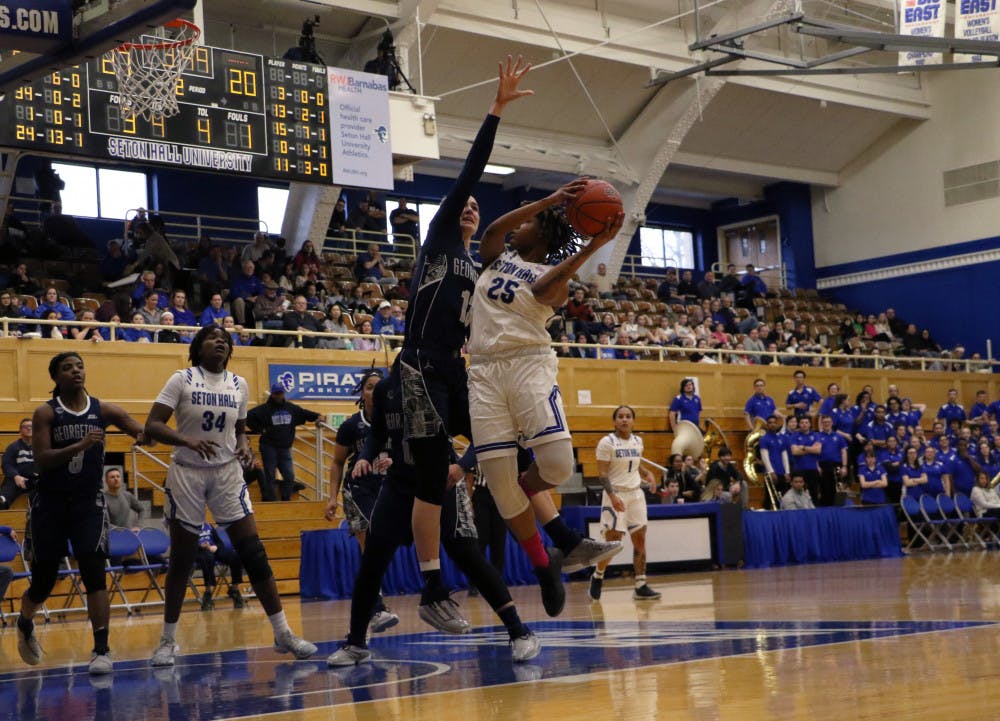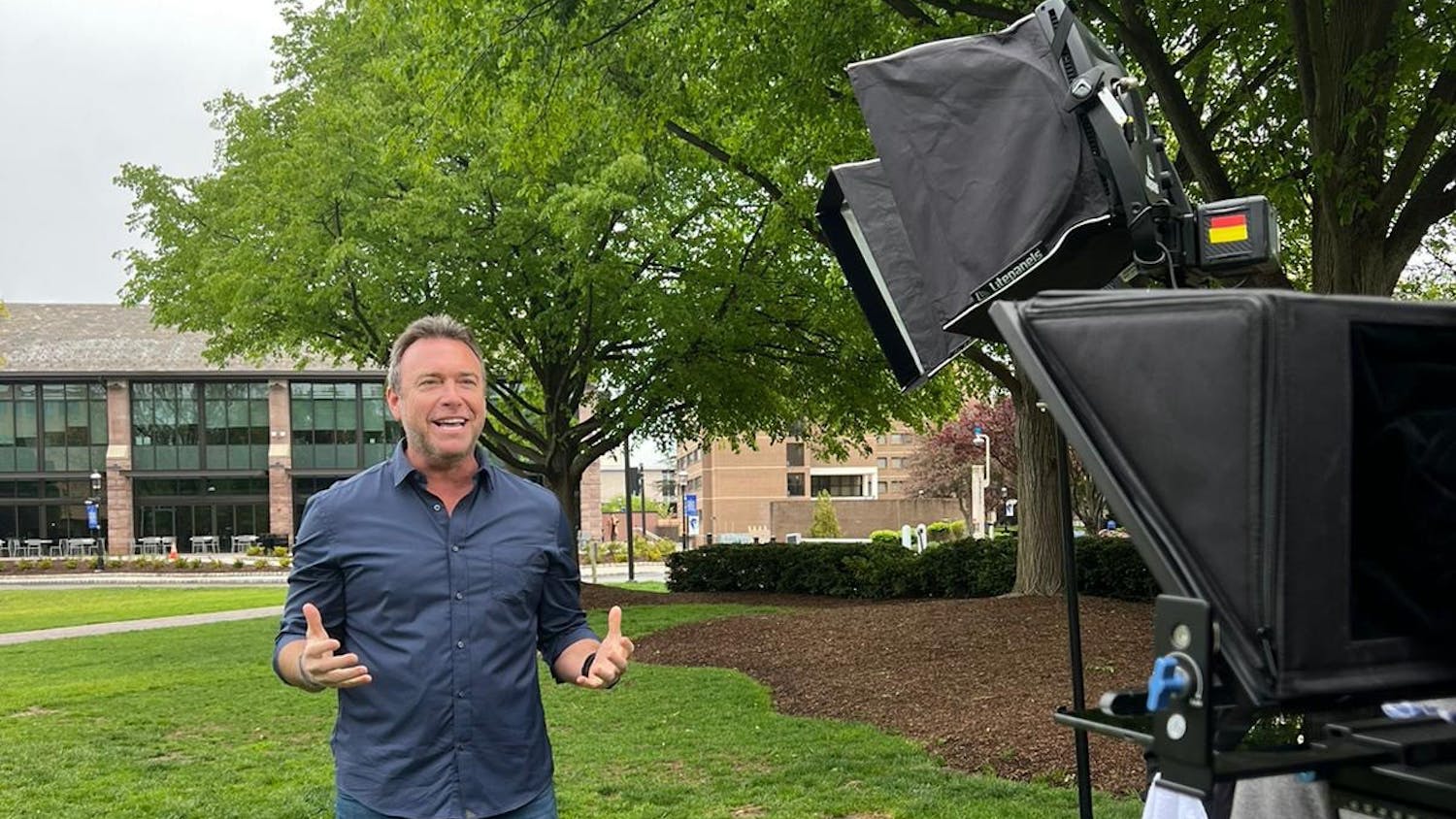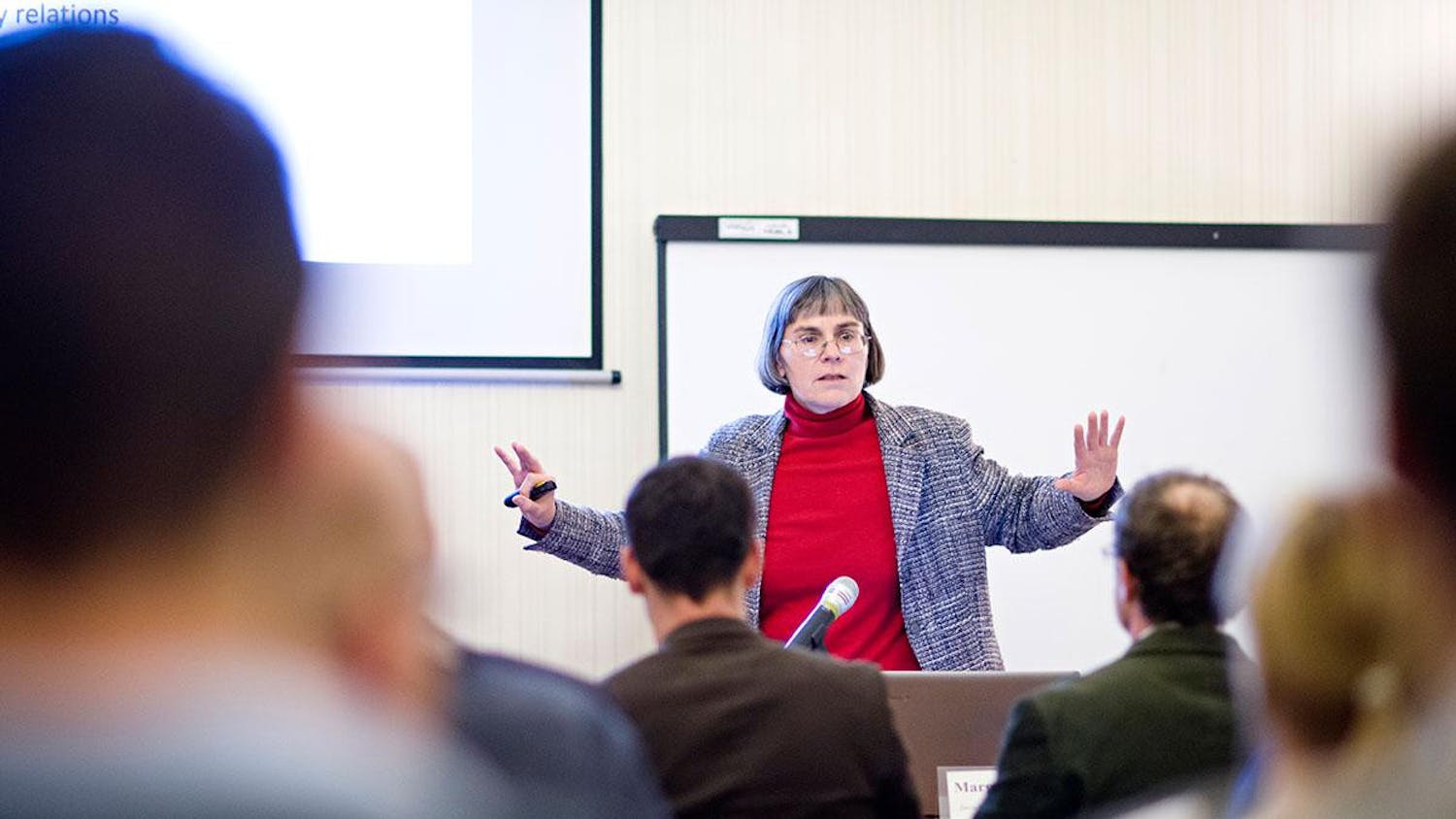Dom La Nena, the Brazilian-born, French and Argentinian-influenced Cellist exposes the soft sounds of Brazil with her debut album, "Ela," released Jan. 2013. Within the confines of the album one feels close not only to the creator of the beautifully rendered tracks, but also to her home of Porto Alegre, Brazil. The sparse, but not slight instrumentation highlights her virtuosic ability to phrase her cello, layered under her delicate Portuguese and Spanish whispers, that creates something so refreshing and so unique that it is hard to categorize "Ela" in any one musical genre.
While she was in town for a few shows and radio spots during the week of Easter, The Setonian was given the opportunity to meet and interview her. We jumped at the chance.
I met Dom La Nena off of Broadway at the SOHO Grand Hotel in New York City, we met in the main lounge with high ceilings, wide windows, and Victorian style furniture. She was on her way back to Brazil and her cello was packed up and tucked away in the corner. When I got there, she ordered a pot of tea, and offered me a seat.
Interviewer:Let me just start out by saying I've been listening to "Ela" non-stop lately, and I think it's really very wonderful. The way your compositions pleasantly avoid any sort of clich?© or stereotype of South American or Brazilian music is very refreshing and intimate and close, I thought. It's been my morning album, when I'm making coffee and getting ready for the day.
Dom: (smiles) Thank you so much, that is so nice to hear.
Interviewer:No, thank you for your creation. While I was listening to the album I noticed an expert simplicity or minimalism within the texture of the music and it's so different from what the 21st century - the age of the computer screen - calls for. Where eight or nine layers to a track reigns supreme. Dubstep for example. And I was wondering why, as a form or structure, did you choose something so minimalistic?
Dom: It was not necessarily a choice to have these minimalistic arrangements, but it was a choice to have some intimacy on the record. You know when I composed and recorded the songs I had no record label. When I wrote them I didn't want to release them, it was my personal thing. And of course it was very minimalistic because I only had my cello and my keyboard, so when I started work, it was at Piers Faccini' s home studio and it was really important for the music to be intimate for the listener. I had no money involved and no real pressures, so it just came out like this. We made it the way we wanted to listen to it.
Interviewer:I think you have absolutely achieved that intimacy. You mentioned the English singer, songwriter and painter, Piers Faccini, and I've read that Piers allowed you to record in his home studio, and at first he wasn't necessary involved with the record?
Dom:Yes, he offered me his home to me to work in his studio in Cevennes Mountains of France. We had played together a few times before and he is a really good friend of my husband so we knew each other. When I was there we had no sound engineer because we made it all by ourselves, so he showed me how to record and use his equipment, and when he heard what I had recorded he really liked it and wanted to get involved.
Interviewer: So it wasn't so much of him hearing something and changing it, he just added to your creations?
Dom: Yeah, I stayed there for one week and I made all the first arrangements of the music and recorded them, and started to add some stuff, but I didn't have a lot of time to work on it. And after listening to what I had recorded he said that he could add a few guitar phrases and little back up vocals, here and there; I had no specific idea what I wanted him to do, I just gave him...
Interviewer:An artistic license?
Dom:Yes! Exactly. We really didn't even speak about it, we we're just on the same page.
Interviewer:I think that might be one reason why its' so intimate and personal because its completely you. Now, when you were writing these tracks did you have a main theme or idea in your mind? Other critics have written that this album was a sort of ode to your childhood in Brazil. Was that originally what you wanted to write about?
Dom:Well When I started to write the lyrics I didn't think about, Ok I'm going to write about my childhood, I just started writing. After, or maybe halfway through I realized I was actually talking about my childhood. I've spent so many years away from Brazil that I've never felt aligned to one specific country, and I think that played a big part. I realized this all after though. What I was actually writing about.
Interviewer:Most of the thirteen songs off the album, except for three, have an unmistakable melancholic tone to them, not necessarily sad, but almost, and I was wondering why, if that's how you feel now looking back on your childhood? Or if there was another reason?
Dom:It's not really sad at all actually, I like melancholy very much, and I agree in all of the album that pathos is very present. Perhaps because I went to France when I was eight years old and it was like I was ripped out or away, and then came back to Brazil and then left again back to Argentina, so I am and was always missing someone somewhere, so it really isn't a sadness, but a seriousness.
Interviewer:You just spoke of your travels, could you touch on that topic a little more?
Dom:I was born in Brazil and then went to France when I was eight years old. After I went back to Brazil for eight months, and then moved to Argentina to study with Christina Walevksa, the master cellist, and eventually moved back to France.
Interviewer:Why did you move back to France? How did you choose? Was it to start your music career?
Dom: Well I went back to France to continue my studies.
Interviewer:Right, of course. That makes perfect sense. After all of the international travel and being exposed to so many different cultures and ways of viewing music, do you think music, or the study of music is treated differently, or more seriously, maybe with a larger emphasis in certain countries compared to others? Like the States compared to France?
Dom:Well I never studied in the states, but France is the best place to study music, but it's very, very, very competitive, when I came back and I was eight years old, there were so many people playing so well.
Interviewer:Were you intimidated at all?
Dom: No I wasn't intimidated, but I realized that this level of competition really wasn't healthy for me. When I started playing with the British singer Jane Birkin, I realized there was another way to make music and make a living, and of course if I could I wanted to continue to play classical music, but the problem is the atmosphere within the classics. For example when I started making popular music it wasn't possible to continue playing at the school, because teachers and students, especially students, thought you were selling yourself or something, it was just very hard...
Interviewer: Do you ever have any plans of returning to Classical Music?
Dom:No, not now at least.
Interviewer:If this was done on purpose to make music of this nature that might fall under the category of "world music" a little more accessible to more main stream outlets especially of those in America? And I don't want to say pop, because that isn't what this is..."
Dom:No, I understand when you say pop. Of course I would like to continue making classical music, but they are two completely different worlds, so eventually yes, but I would really like to eventually make some instrumental only, and one thing I was able to do is to make all of the arrangements by myself, and in classical I may not be able to do that.
Interviewer:Given that you speak Portuguese, French, Spanish, and now English. And most of the lyrics on "Ela" are sung in either Portuguese or Spanish. Would you say that you have a favorite language, as far as verse or a lyrical quality goes? If one carries more of a rhythm then the others...?
Dom:"As Portuguese is my first language it comes much easier for me, I don't speak it the most of the time, I speak more French then Portuguese but it comes naturally for me, and I think also its a very musical language, everything sounds good when you put a melody to it, French for example its very hard for me write lyrics because it's so much more delicate, but I like very much writing in Argentine Spanish, which is much different than the other south American dialects, it's a little mix of Italian and Spanish actually, and there are some very musical words and sounds and I think its a good language to sing to. Piers and I have been writing some new songs for my new album actually and we have some English mixed with Portuguese..."
Interviewer:So will you be singing in English in the next album?
Dom: "Well if the songs are good I will try. For me I think it's very important to sing in your first language. I think there is a lot of people, French artists, who sing in English and I think there's a very, very small portion who have done it well. Its always better when you sing in your first language, your always more comfortable, and the accents are correct. This isn't a philosophy for me it's really all based off of how something sounds. But I think I won't ever make an album in English. A few songs maybe."
Interviewer:Can I ask about the creative process for you? Do you start with a phrase in mind when you're creating something, is it a lyric, or a melody, or a rhythm?
Dom:"Sometimes you know you just have one or two words in your mind for a day or two and you have a melody and it becomes like a puzzle to try and fit everything. But this album took me one month to create, I sat down and wrote them all, and since...Well, now I'm trying to find time to write more songs, I can't just do it if I have one afternoon free, it's a very delicate process, the words have a sound, or a melody, and you find the way through the syllables."
Interviewer:That sounds very much like the process of writing poetry. A string of words pop in your mind and you go from there. I'd like to go back to the album for a moment. Given that Ela turned into a nostalgic recollection of your younger days could you pick one song that would represent who you are and where are you are now?
Dom: "No Mea Paiz" is the only one where I'm speaking in the first person, where everything's coming directly from me. I played this song in Portugal once and I saw on a blog that someone thought this was a love song, but it wasn't a love song, it wasn't metaphorical at all. The others off of the album might be, but No Mea Paiz was/is just...me.
Interviewer: Given that the album denies any stereotypes and clich?©s, was this at all an explicit cultural statement about Brazil maybe critiquing where the stereotypes came from in the first place, or that not everything has to sound big and boisterous, with loud African drums and hip shaking?
Dom: "Yeah you know its very interesting because today in Brazil especially in San Paulo, you have a lot of people doing a lot of different things in music, and for now they don't have an international impact, but they are very talented in Brazil. I discovered after I wrote the songs of the album, because they were very surprised because a lot of people are feeling like we need to make something different. Brazilian music has so many clich?©s and I think in some years there will be a new Brazilian music. Especially because of the Internet. It is so important also because we can listen to all of the music being made in America and Europe. It's a very interesting evolution for a Brazilian Musician. When one thinks of Brazil they think of the beach and the drums, but there are other things going on.
Interviewer: Well thank you so much for having me, Dom, it was really excellent talking to you. I wish you well on your travels.
Dom: No! Thank you for coming out and speaking with me.





